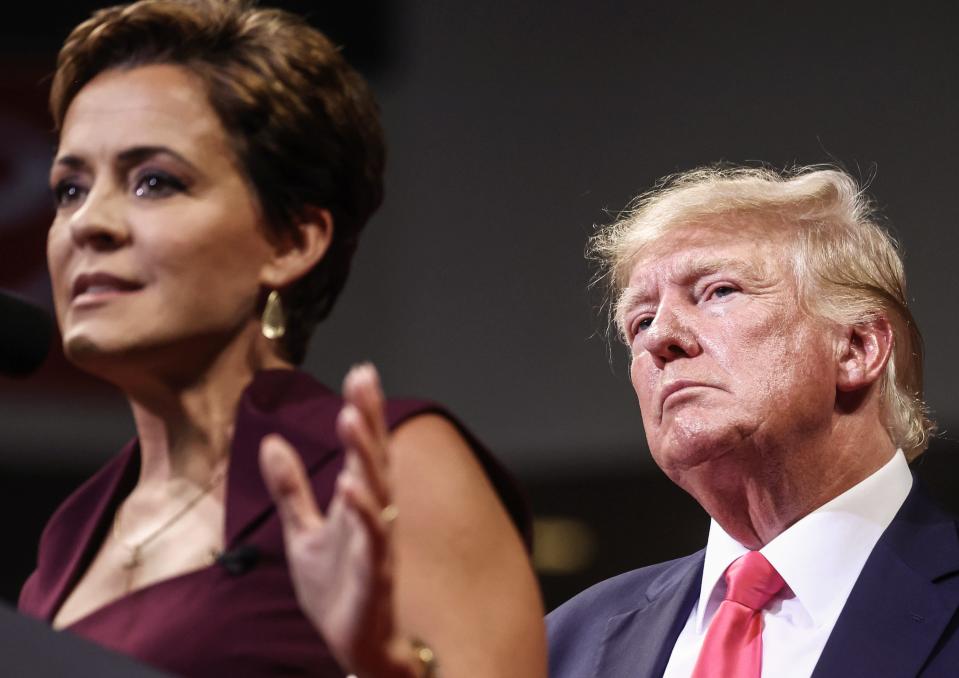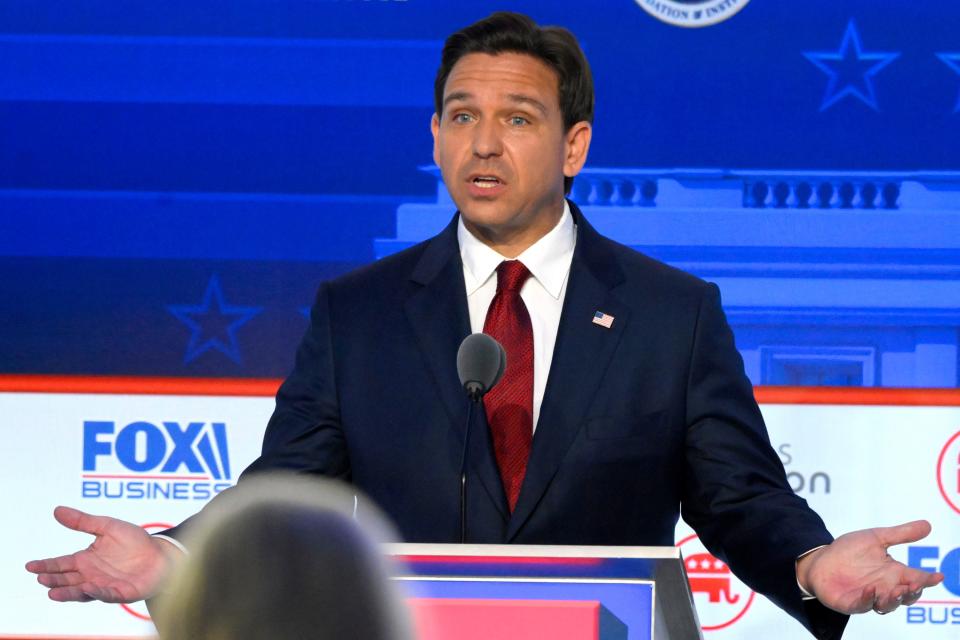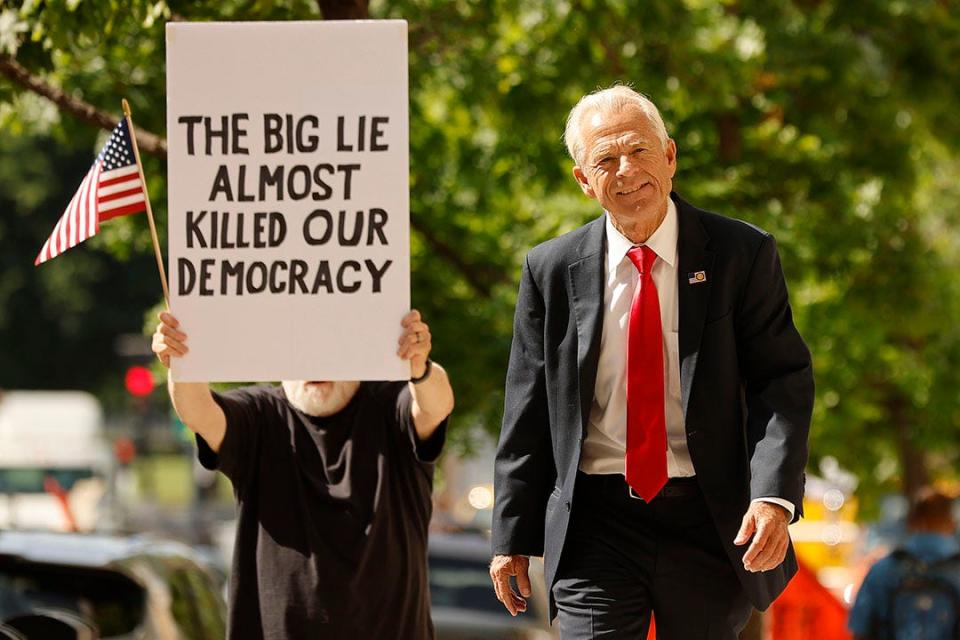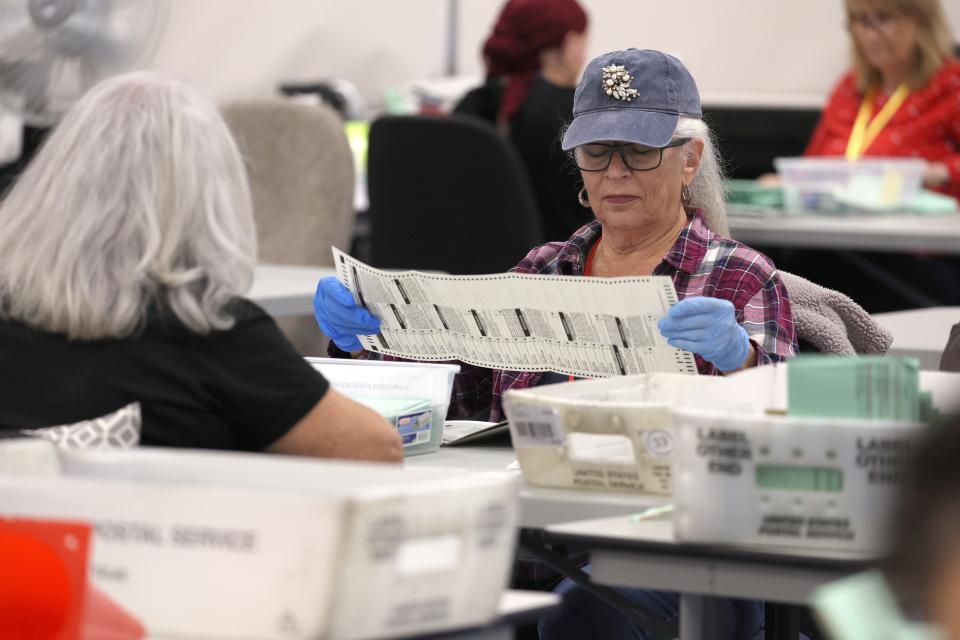'Alive and well': Election deniers linger in statewide, presidential elections
Kansas Secretary of State Scott Schwab said that as an elected official, he is used to taking some political hits.
But those hits felt like knockouts when secretaries of state and election workers were attacked in 2020 with a bevy of conspiracy theories, which continue to resonate and impact the electorate.
Schwab, a Republican, sees some signs now that the economy is top of mind for most voters ? not election conspiracies ? but said some of his fellow election officials continue to have concerns about the influence of misinformation on U.S. elections.
Despite having mixed results in last year’s midterm elections, candidates who supported baseless voter fraud claims are back on the ballot this year and will be in November 2024, according to research by States United Action, a nonpartisan elections organization.
Some experts say election denial is "an industry" now that will persist in American politics.
Election denial is 'alive and well'

Along with the economy, abortion rights and education, the future of democracy emerged as a key voter issue in the midterms, election officials and experts said to USA TODAY at the time.
Schwab said he believes the country has "crossed the apex" there.
“People are more concerned with the economy. They're concerned with geopolitical dynamics. I believe individuals are concerned about crime,” Schwab told USA TODAY. “I don't think they're concerned that there's this massive conspiracy that either foreign governments or certain elites are trying to control 50 states' elections.”
But Joanna Lydgate, CEO of States United Action, said election denial has become “an industry” in American politics.
"Election denial is a campaign platform, it's a fundraising strategy, and it's not going anywhere," she said.
A recent Monmouth University poll found that as of May, about 30% of Americans believed the outcome of 2020 was the result of voter fraud. A poll by CNN this summer found that number rose to about 70% among Republicans, who said they believed President Joe Biden did not legitimately win the election.
"It's still an issue that is very much alive and well," Lydgate said.
Who are the election deniers running for state office?
After the 2020 presidential election controversy and the Jan. 6, 2021, attack on the Capitol, the 2022 midterms were flooded with candidates who endorsed former President Donald Trump’s claims about a stolen election and widespread voter fraud conspiracy.
The majority of these election deniers lost races for top positions, such as governor, senator and secretary of state.
A handful have stuck around the political scene, including Kari Lake, who after losing her bid for Arizona governor last year is expected to launch a Senate campaign this week.
States United Action identified five election deniers in state races this November.
Sharon Hewitt, a Republican state senator and one of several candidates for Louisiana governor, signed a letter in 2021 asking the Louisiana congressional delegation "to stand firm and call into question the electors" from several states.
Also in the Louisiana gubernatorial race, Attorney General and Republican Jeff Landry, expressed support for a Texas lawsuit questioning the 2020 election results.
Running for Louisiana secretary of state, Amanda Jennings has made multiple Facebook posts claiming voter fraud and a stolen election in 2020. Jennings is an Independent and has never run for office.
Businessman Brandon Trosclair, Republican, is another candidate in Louisiana's secretary of state race. Online and at campaign events, he has accused Louisiana's voting system of being "vulnerable" and called for the state to "immediately decertify these systems."
Republican Lynn Fitch is running for reelection for Mississippi Attorney General and has publicly supported the 2020 Texas lawsuit.
The number of election deniers running in 2024 state races is unknown, Lydgate said, because many candidates have yet to announce bids.

Election deniers in the race for the White House
Researchers at States United Action are also following 2024 presidential candidates, three of whom they say are election deniers.
On that list: Trump.
The first and foremost 2020 election denier, Trump initiated the claims that a second term was stolen from him, fueling the movement taken up by supporters across levels of office. But while she has concerns about Trump running again, Lydgate said the issue is no longer limited to the former president.
“Trump created the election denier problem, but it's grown much bigger than him,” Lydgate said.
Lydgate’s group also labeled Florida Gov. Ron DeSantis as an election-denying presidential candidate.
DeSantis had managed to dodge taking a clear stance on the 2020 election results, placating Trump supporters without alienating other voters. The governor made his strongest remarks to date on the question this August.
“No, of course he lost,” DeSantis told NBC at the time. “Joe Biden’s the president.”
DeSantis had campaigned ahead of last year’s midterms with Republicans who endorsed false election claims, including now Ohio Sen. J.D. Vance and Pennsylvania gubernatorial candidate Doug Mastriano.
Lydgate said these alliances, along with DeSantis’ criticism of election procedures, led them to group him with Trump and other election deniers, despite the governor’s recent comments.
“Those lies and conspiracies being spread have real-world impact," Lydgate said. “You don't get to pretend you didn't say it just because it's not politically convenient anymore.”

Whether election denial still resonates with most voters, Schwab said he has doubts.
"But that's (Trump’s) message. And so, whether that works, I don't know,” Schwab said. “We'll just see as the elections unfold.”
Worries linger about poll workers' safety
Election officials across states are recovering from 2020, Schwab said. One of their concerns, he said, is having enough volunteers to staff polling locations.
Volunteers last year faced threats and intimidation ? sometimes by their own neighbors ? over the baseless claims of voter fraud and other conspiracies. Fear of these attacks led to an exodus of election workers.
“If you were a poll worker because you were just wanting to do your civic duty, or you were a teenager saying, ‘I'm going to do this, and I can use it to apply for a scholarship or get involved,’ and all you're doing is working an election and somebody personally attacks you in line because they think you're somehow part of a grand conspiracy ? they don't exactly want to come back,” Schwab said.
The Kansas secretary of state said he and other top election officials were surprised by the “veracity” that they faced, along with the backlash felt by ordinary Americans.
“Us secretaries are either politically appointed or politically elected, and so we're used to some darts,” Schwab said. “Those poll workers, they're just going to work. They're not part of some grand scheme.”
The size of election denial’s threat remains to be seen, Schwab said, but he believes the narrative is already improving.
“Yogi Berra said the problem with trying to predict the future is it keeps changing. And we don't know what the changes are going to be for 2024,” Schwab said. “Most of us have learned this is what we see today, knowing that's probably not what we're going to see in March of next year.”

This article originally appeared on USA TODAY: Election deniers continue to run in 2023, 2024 elections
